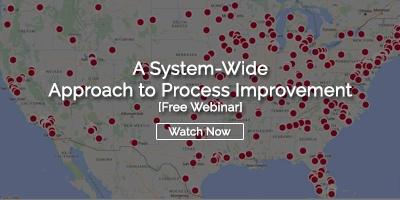 Continuous Improvement in Education has been rapidly growing over the past couple years. One group that deserves mention is the Carnegie Foundation for the Advancement of Teaching.
Continuous Improvement in Education has been rapidly growing over the past couple years. One group that deserves mention is the Carnegie Foundation for the Advancement of Teaching.
Founded by Andrew Carnegie in 1905 and chartered by Congress in 1906, the Carnegie Foundation is an independent policy and research center that focuses on every level of education. The Carnegie Foundation is committed to developing a network of ideas, individuals, and institutions to advance teaching and learning.
These stated missions and goals also mean that the Carnegie Foundation is at the forefront of Continuous Improvement in Education; they even hold an annual conference on Improvement in Education. This year’s conference is taking place this year in San Francisco, March 27th-29th.
The Carnegie Foundation published an incredibly insightful and informative white paper simply titled “Continuous Improvement in Education,” (2013) by Sandra Park, Stephanie Hironaka, Penny Carver, and Lee Nordstrum. I highly recommend putting it near the top of your reading list. Check out the entire thing here.
Listen to this Post or Subscribe to the Podcast!
The white paper delves into continuous improvement as a practice, three levels of education in which continuous improvement is currently being implemented, as well as numerous themes found in different types of educational organizations that have implemented continuous improvement.
Whether you’re just learning about Lean in education - or any other industry, for that matter - there were a few conclusions in the paper that are intriguing and helpful.
At KaiNexus, we often talk about having two jobs: doing your work and improving your work. Interestingly enough, Park et al., equate these two distinct but related jobs to Douglas Englebart’s model (1992, 2003), cited in the whitepaper. In Englebart’s model, the work you do is referred to as “A level” activity, and the work you do to improve is “B level” activity. Included in his conclusion is a third type of work, predictably referred to as “C level” activity. “C level” activity involves sharing and learning from other organizations. Without it, B level activity begins to have diminishing returns, generating higher demand for more “B level” activity.
What does “C level” activity look like in education? It is schools and educational organizations working together to share improvement ideas, results, and methodologies.
One of the conclusions that Park et al. came to was that “continuous improvement is not synonymous with improving all organizational processes simultaneously; rather, research and learning cycles are iterative and gradual in nature.” Sharing effective methodologies with other educational institutions accelerates improvement in the entire network because each organization benefits from the knowledge gained by others facing similar problems.
I’m inspired by articles like this one from the Carnegie Foundation because I believe that improving the education system is a timely, critical and ambitious goal. We’ve entered an exciting time in which information can be spread more easily, across wider networks, than ever before in human history.
Working together to improve has compounding returns. It’s said that two violins are twelve times louder than a single violin. The sound from one reverberates inside the body of the other, and together they amplify their voices.
In the same way, teachers, administrators, and staff engaged in education improvement at all levels now have the ability to amplify the voices of one another, giving every improvement a wider range and a greater impact. The idea of a single educator in a single institution can improve not only the lives of their own students, or their own institution - but can change the standard for education everywhere. And that, my friends, is a game changer.
![[Watch Now] How Lean in Public Schools Applies to Everyone](https://no-cache.hubspot.com/cta/default/326641/38932f80-87a7-478e-a223-940928058374.png)



Add a Comment